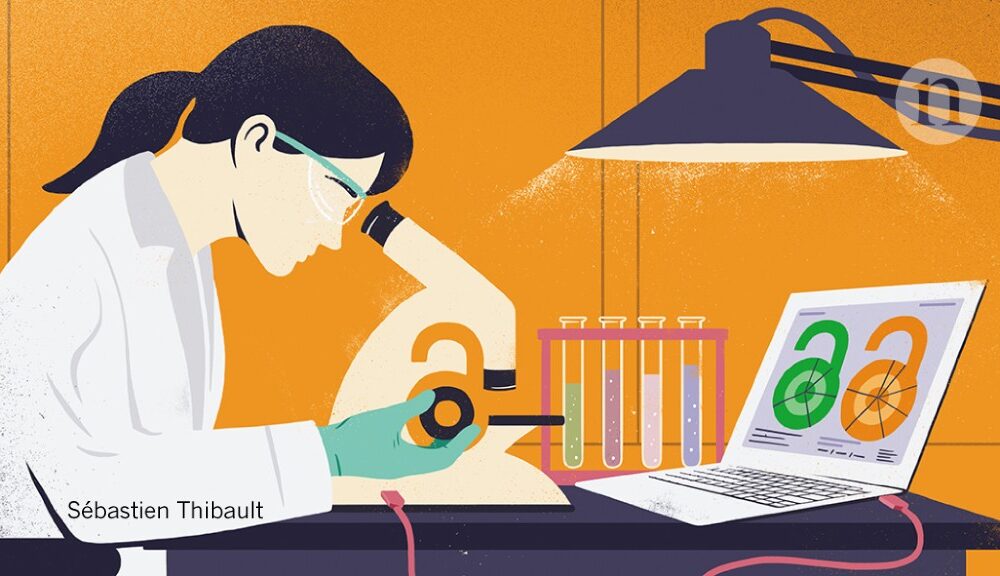For many undergraduates, it can be challenging to find opportunities to learn the applied skills of science, technology, engineering, and math (STEM) fields in a classroom setting. Being trapped memorizing facts only to regurgitate them during midterms and finals can quickly stifle the enthusiasm that students would have otherwise brought to the scientific community. As a result, many students at McGill search for alternative ways of practicing scientific methods and propelling their careers forward in STEM.
It can be daunting, however, to find research opportunities and co-ops without prior knowledge of the opaque inner workings of academia. Nevertheless, there are students who prevail, and hearing their stories can hopefully guide others in pursuing their own goals.
Hadrien Helfgott, a U2 student studying cognitive science wanted to get a more hands-on feel for the subject, so he contacted with his academic advisor to explore his options.
“I told my academic advisor that I was interested in labs, and he sent me an old list of labs and professors that were recruiting at the time,” Helfgott said in an interview with The McGill Tribune. “I emailed a paragraph introducing myself and I told them that I was interested in their project. [Before applying] I would read scientific articles on their project so that I had a good idea about what they did [….] The seventh professor emailed me back.”
The professor was running an experiment that required participants, so Helfgott experienced the lab as a participant before coming back to run the experiment himself. Being a participant, Helfgott explained, allowed him to gain a deeper understanding of the purpose of the experiment.
“I can’t talk too much about the experiment obviously, but it involves putting EEG caps on people and measuring their brain waves while we observe specific stimuli,” Helfgott said. “We look at how their brains respond to the stimuli and that allows us to draw our conclusions.”
Darren Li, a U1 student studying quantitative biology, holds a fair amount of experience in lab work. Having reached out to professors in his first semester at McGill, he has been assisting at the Pollock Quantitative Biodiversity Lab research lab for over six months and continues to work into his most recent semester.
“I just went on to the biology [faculty] website and chose professors that I was interested in working with. [Laura Pollock] was the first professor that I contacted and we met and talked about it,” Li said in an interview with the Tribune.
After reaching out to the professor, Li quickly found a role within the lab.
“I made a trait database for every single vertebrate in Canada,” Li said. “And now the lab can use my database […] to publish recommendations on which lands to protect based on different metrics.”
Like Li, U1 pharmacology student Alia Devasahayam decided to reach out to a professor who inspired her. After taking CHEM 120, Devasahayam emailed Pallavi Sirjoosingh to see how she could work with her in the future.
“I was always interested in [science], but after meeting [Professor Sirjoosingh] I was interested in doing it with her,” Devasahayam said in an interview with the Tribune. “Hearing about her work and how she talks about science, it made me think, ‘Yeah, now I’m into it too.’”
Devashayam is also part of the Tomlinson Engagement Award for Mentoring (TEAM). Founded in 2001, TEAM was created to allow students to assist in the teaching of a multitude of courses at McGill. TEAM students are selected to provide peer mentoring to other undergrad students. For Devasahayam, the process of joining TEAM was as easy as contacting her professor, completing a form, and undergoing a selection process.
“Last semester I was a lecture help, so I was answering questions during the lectures, which was really interesting because a lot of people ask questions that aren’t in the textbook,” Devasahayam said. “They’re so curious and I love that.”
The consensus among the students interviewed was that pursuing extracurricular activities in the STEM fields allowed them to develop a deeper practical understanding of their chosen disciplines while creating memorable experiences along the way. It goes to show that there’s more to science than can be found in the classroom, and that there are fantastic opportunities awaiting for those who seek them out.









